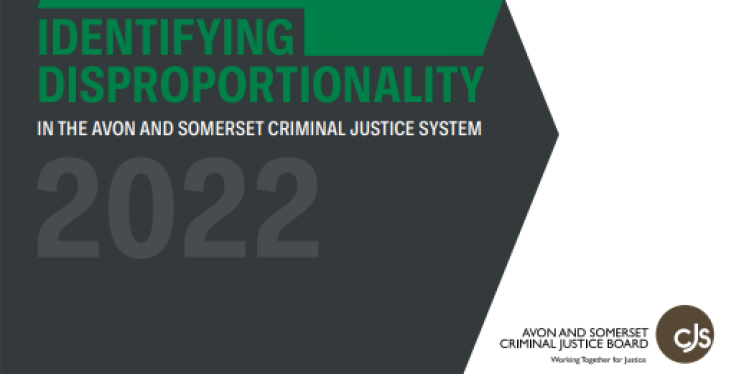Announcing Identifying Disproportionality in CJS report

A report has been published following a two year review into racial disproportionality in the Avon and Somerset Criminal Justice System (CJS).
The review was led by independent chair Desmond Brown, who has authored the resulting report – Identifying Disproportionality in the Avon and Somerset Criminal Justice System.
There are 83 recommendations that have come out of the report for the police service, prisons, the local Youth Offending Team (YoT), schools and other agencies across a range of issues.
“This review has been a lengthy and complex process to bring partners together in order to benchmark the disproportionality and racial disparity we know exists within the agencies that make up our CJS.
“Some progress has already been made with the organisations that took part looking more closely at their data and making changes to their processes and policies as this review progressed.
“The challenge now is for everyone across the board to not only accept the findings and commit to implementing the recommendations for their respective organisations, but to work together to go beyond the recommendations. We need to ensure the legacy of this report has a lasting impact by continuing to build on the picture and make meaningful change that stops young people from our Black, Asian and minoritised communities being over-represented in all areas of the CJS at alarming rates.”
Desmond Brown
The report was commissioned in 2019, by the previous Chief Constable and Police and Crime Commissioner (PCC) for Avon and Somerset, Andy Marsh QPM and Sue Mountstevens OBE, as joint chairs at the time of the Avon and Somerset Local Criminal Justice Board.
It was in response to the national Lammy Review – led and published by David Lammy MP in 2017.
The aim of the review was to take a localised approach to the principle of “explain or reform” in respectof any identified disproportionality within those areas at participating agencies, as set out by Lammy in his report.
The local review investigated data processes and policies in five areas of focus including:
- Stop and Search in policing
- Out of Court Disposals (OOCD)
- Youth Justice
- Prisons
- Human Resources – recruitment, retention and progression of employees from Black, Asian and minoritised communities.
There was also a focus on the separate work of the The Judiciary.
“We welcome the report and its findings, and I would like to thank Desmond Brown for his hard work in bringing this report to fruition.
“As the chair of the Avon and Somerset Local Criminal Justice Board I, with the support of my office, will be working closely with Avon and Somerset Police and the Board to ensure that we are leading the way in tackling racial disparity and aiming for excellent victim support, effective and efficient policing and fairer criminal justice services for all.”
PCC Mark Shelford
Chief Constable Sarah Crew added: “We welcome the publication of this report and fully accept the recommendations made for the police, many of which we have already implemented, or started to implement. We look forward to working with the report’s author Desmond Brown and the communities affected, to improve the experiences of people who are disproportionately affected by police powers such as stop and search.
“We understand that in order to recruit a more diverse workforce that better reflects all of the communities we serve, we must first accept people’s trauma and understand their lived experiences. It is one of my top priorities to improve these experiences and reduce the confidence gap that exists between Black and white people in the police.
“Although the police are just one of a number of agencies provided with recommendations in this report, we understand that the police are the entry point into the criminal justice system for many people, for example through stop and search. We take this responsibility of being the ‘gatekeepers’ very seriously and it is vital that we improve these entry point experiences in order to help build better relationships with our communities.”
